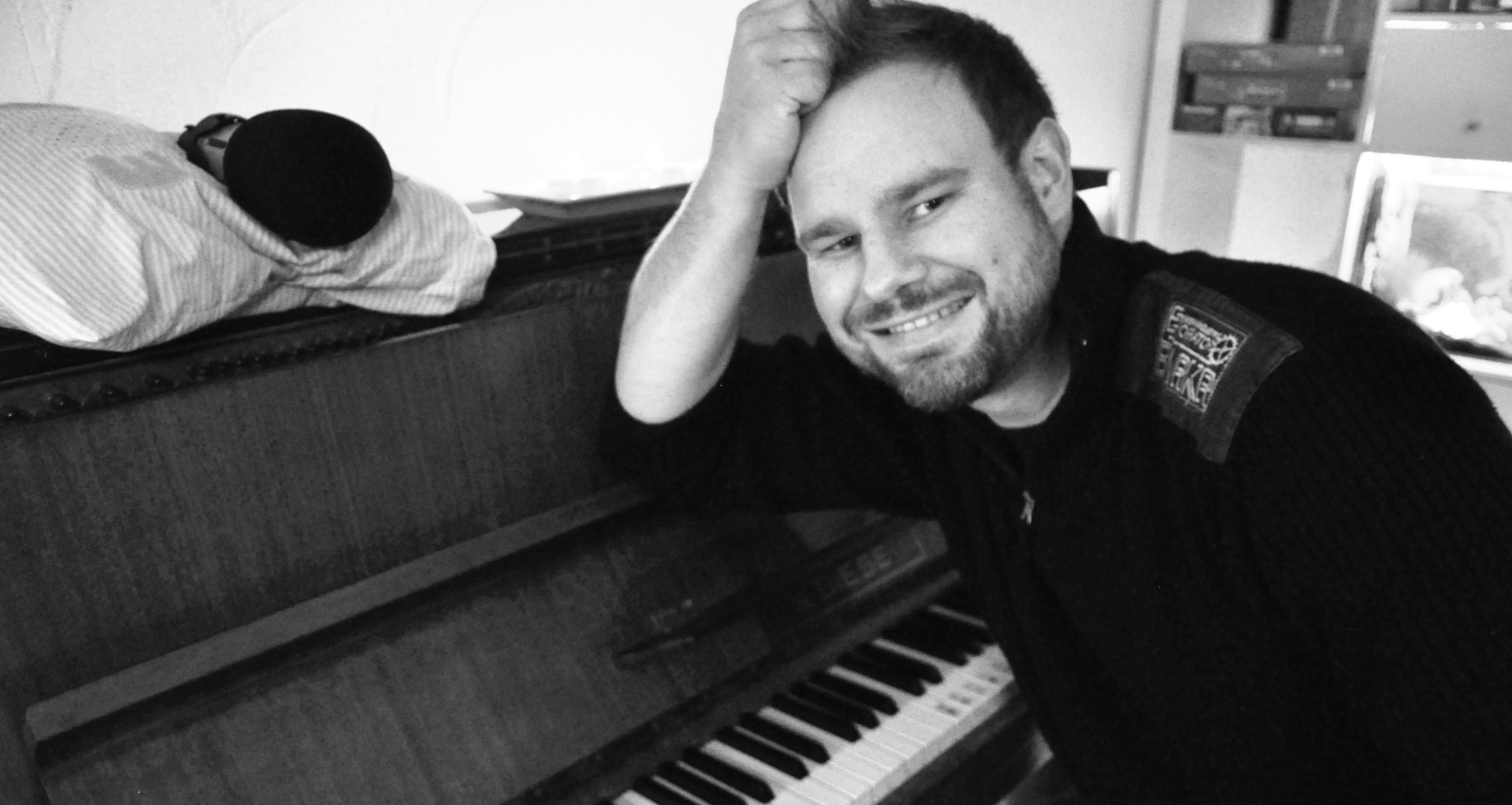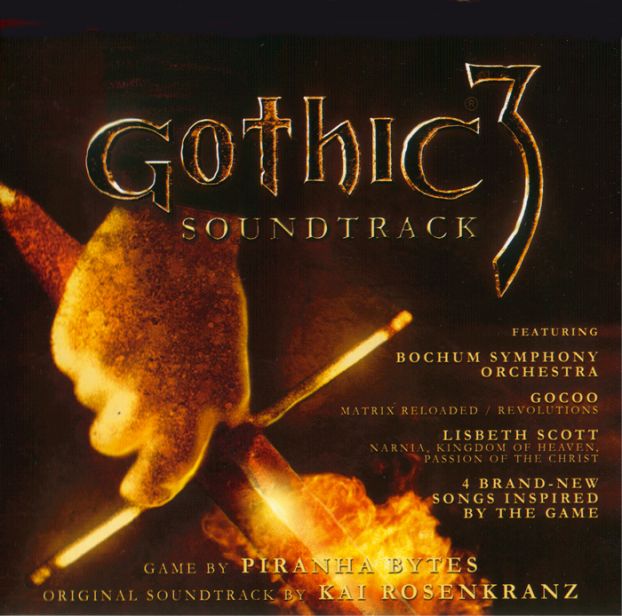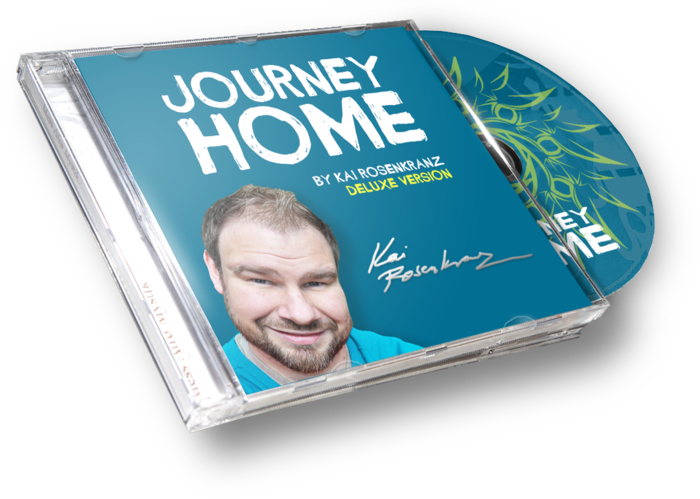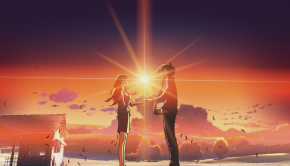Kai Rosenkranz Interview: Gothic & Risen Composer on his Journey Home
German composer Kai Rosenkranz won the hearts of many gamers with his rich orchestral soundtracks for the first three Gothic titles and Risen on behalf of Piranha Bytes. However, he has spent the last five years working away from composition, focusing on creating game development tools through his own company. Nevertheless, he is desperate to return to composing again. As a result, he has recently launched a Kickstarter campaign to fund the production of a new original album, Journey Home, containing bonus Risen and Gothic medleys.
In this interview, Rosenkranz recollects his works with Piranha Bytes, discussing how he embellished the worlds of Gothic and Risen, while pushing the boundaries of each title musically and technologically. He goes on to discuss his independent work, including creating articy:draft, before giving a tantalising preview of his solo album. Welcome home, Mr. Rosenkranz!
Interview Credits
Interview Subject: Kai Rosenkranz
Interviewer: Chris Greening
Editor: Chris Greening
Coordination: Chris Greening
Interview Content
Chris: Kai Rosenkranz, many thanks for talking to us today. First of us, could you tell us about your background? What got you into music and games?
Kai Rosenkranz: Thanks for having me, it’s a pleasure. I got into the games industry when I was 17 and approaching my final school exams (A-levels in Germany). I was planning to study something related to game development.
To fortify that decision, I reached out to a few game studios in the area where I lived and asked them if I could just come over for a visit. Just to get an idea of what it’s like to be a game developer. So I visited Blue Byte (“The Settlers”) and some smaller studios, and also eventually Piranha Bytes. They were only five people back then in a tiny office, and I learned that they didn’t have anyone for the audio sector. I showed them my stuff, mostly music that I had written for my own game ideas, and got the job. I finished school while writing the music for the first Gothic and stayed with Piranha Bytes for 12 years through to the end of the original Risen.
I got piano lessons when I was a kid, for almost two years. My piano teacher wanted me to get a theoretical background in music and notation, but my approach was more intuitive and emotional. I just enjoy expressing myself emotionally through music, and I’m really bad at writing it down as sheet music. So I don’t really have any background in music theory or something.

Chris: Your music for the Gothic and Risen titles is deeply rooted in fantasy. What defines a great fantasy score to you? Do you have any other favourite fantasy film and game scores?
Kai Rosenkranz: A great score, regardless of the genre, needs to capture the mood, character, and soul of the game. If it’s a fantasy score, it has to be appropriate for the game world in terms of instruments, but also correspond to the overall tone and mood. So, for example if the setting is a prison colony, the music has to pick up the constant threat in the forbidding environment, even though the scenery may look rather idyllic in some places. And if it is a desert region, that has to be reflected in the instrumentation. But there’s no such thing as a golden rule. If something is considered “appropriate” depends on many different factors, so this is just my personal approach.
I think that Howard Shore’s score for The Lord of the Rings stands out regarding how well he understood the desired mood and supported it through his music. Also, his choice of instruments was remarkably creative and spot-on for the different regions and characters in Middle Earth.
Chris: You joined Piranha Bytes at the age of 17 to begin work on Gothic. Could you share your experiences working on this title? How did you end up juggling so many responsibilities on this project: composition, sound effects, tools programming, visual effects, and web design?
Kai Rosenkranz: Working on Gothic was essentially a very experimental phase for all of us. We have never before worked on such a huge project, so processes and workflows needed to be established throughout the project. We were professionalizing ourselves and the way we worked together over a period of four years, and we still did that way beyond Gothic’s release.
My many responsibilities were a natural fit to my interests. I like working in many different creative areas, and when I created my own games (before Gothic), I always did all the programming, graphics and audio myself. I always felt very grateful to Piranha Bytes for giving me the opportunity to keep jumping between areas. It helps me keep my productivity at a certain level, because when my creative musical output drops for a while, I can move on to the next task and do some graphics. And programming requires a completely different mind-set, so it’s a great way to recharge the creative batteries – and vice versa.
Chris: As sound director of Gothic 2 and Gothic 3, you took the series in even more ambitious directions. Could you tell us more about how you developed the series’ distinctive sound with the music, sounds, and recordings for these titles? How did you ensure you developed the series’ story and mythology in the process?
Kai Rosenkranz: I didn’t really follow a big-picture plan at that time. I could see how all the other areas evolved around me. The graphics got much better, the immersion in the game world was supposed to be taken to the next level, and so on. So I was actually just striving to keep the pace and also push the boundaries in the audio sector.
The distinctive sound of the Gothic series is a blend of different influences. On the one hand, it’s my own style: The way I use harmonies and melodies to evoke certain emotions, and my very personal interpretation of what the world should “feel like”. On the other hand, the music in Gothic and Gothic 2 was a technical challenge that also had an aesthetic impact on the end result. The “Direct Music” system that was part of Microsoft’s DirectX was based on an approach that required me to keep an eye on memory / hard disc usage and run-time performance. I couldn’t just mix and master a final audio track. Instead, I had to input sheet music data (MIDI-files) as well as tons of individual sound files for singular harp tones, percussion beats, string notes, etc. into the system. Direct Music would then “perform” the music live on the player’s machine while he or she was playing.
That forced me to reduce the tonal ranges of instruments (=less samples), the amount of instruments (=smaller impact on performance), and the sound quality (=smaller audio files). Many people call that the “indie sound” of my music and consider it a part of my distinctive fingerprint, but it was actually mostly a technical issue. 😉
Chris: Gothic 3 was particularly lavish with its orchestral, choral, and soloist performances. Can you share your experiences preparing and recording this score? What do you think the Hollywood-style production values brought to your music?
Kai Rosenkranz: Once again, I wanted to take the music to the next level. Not for the “big names” and production values, but to achieve a greater level of authenticity and soul in the music. The graphics in Gothic 3 looked much more realistic, so the “indie style” low-tech music wouldn’t help selling the world. Also, I wanted to have a greater diversity in the musical styles, since the Gothic 3 world consists of so many ethnic groups and landscape types: From oriental desert regions in Varant, over lush and green environments, villages and towns in Myrtana, to the snowy mountains of Northmar. So I looked for people and instruments that could add very specific characteristics.
At that time, I said to myself: I will now reach out to 100 highly talented and somewhat popular musicians, and if only one of them joins the project (that didn’t have a big budget, so I couldn’t pay them a lot), it’ll be a big success and increase of production value. Luckily, the first handful of lovely people I contacted said “yes”, so within a matter of days I had confirmations from Hollywood singer Lisbeth Scott (Avatar, Narnia, Indiana Jones, 300*…), the takio band GOCOO (Matrix movies), and the medieval band Corvus Corax from Berlin. Great times ;).
As I mentioned earlier, I’m not really experienced in the world of “writing music down”, so I knew that providing sheet music for the orchestra would be a big challenge for me. So I surrounded myself with people that could contribute their expertise. Orchestrator Valery Voronov took my sheet music drafts (exported directly out of Cubase) and virtual song demos and helped me transcribe that to an orchestral score. Conductor Hans Jaskulsky was also very supportive and made sure that everything would be “orchestra-ready” for the recording session.
The actual recordings were the most awesome experiences so far in my musical career. As you can imagine, listening to an orchestra performing my own music was the pinnacle of my time at Piranha Bytes. Just because I could feel how those 65 people added their own soul and passion to my music, which filled me with loads of gratitude.
Chris: In contrast, Risen took a significantly more ambient approach. What inspired you to shift direction for this spinoff franchise? How did you ensure the resultant soundscapes were still immersive despite being relatively subdued?
Kai Rosenkranz: The Gothic 3 score was received very differently, both by fans and my fellow co-workers at Piranha Bytes. While the production quality itself was mostly praised, the music was perceived as being too distractive and over-the-top. So it was part of the musical concept of Risen to find a better balance. I think that my music for the original Risen did a better job at subtly supporting the overall playing experience, despite the lack of an orchestra.
I tried to squeeze as much mood and atmosphere into the soundscapes as possible, through the choice of instruments, but also in the structure of the music. It would allow me to add emotional peaks with pathetic melodies every now and then, but then quickly fall back to the dynamic range of a meditation CD. 😉
Chris: You also explored adaptive musical approaches in your work, especially Risen. How did you approach writing adaptive sounds from a technical and musical standpoint? What do you feel it brought to the experience?
Kai Rosenkranz: My game music has always had a strong focus on being adaptive. Adaptive music is a must for games where music is an important factor in creating immersion and a coherent presentation for all senses.
The reason why we used DirectMusic for Gothic and Gothic 2 was because the dynamic “real-time performance” approach allowed us to quickly switch between musical themes at run-time, and even have musical transitions (instead of just cross-fades). We could ship tons of MIDI data for many game situations and transitions without a significant memory footprint. So each location in Gothic had explore/threat/combat variations and transitions to various other themes.
Gothic 3 and Risen used prefabricated (and thus mixed and mastered) audio files, and we added the dynamic element by adding transition points and meta-data to the audio files which would then be used by the adaptive music system. Risen was the first game to actually use cross-fades between explore and fight variations. Both would play side-by-side all the time, and the system would introduce a fight by increasing the volume of the “fight track”.
Chris: Five years ago, you left Piranha Bytes to start your tools development company Nevigo. What inspired you to go independent? Having gained a reputation for tools development and sound direction alike, what inspired you to focus on one over the other?
Kai Rosenkranz: There are a number of reasons. On the one hand, honestly speaking, working on the music for Risen felt like a step backwards after the big-time production that was Gothic 3. I had always enjoyed the constant pushing to the next level at Piranha Bytes, and Risen was a break of that development. Also, I was involved in an own company even before Piranha Bytes, so I tend to enjoy the concept of being self-employed and “in charge”. So it was clear to me that I would build something from the ground up myself, one day or the other. And, last not least, I have always been an advocate of workflow improvements, pipeline optimization, and “shortening iteration times”, as we call it. That was one of the reasons why I started coding development tools for the workflows at Piranha Bytes that were clumsy and inefficient. These three factors came together after Risen.
I knew that music would remain an important part of my life, and I planned to give it more room in my spare time, which didn’t really work out. With two kids (and the third one on the way) and a full-time job in the own company, there’s no such thing as me-time anymore ;). So, after five years, I have really started to miss the music-making heavily.
Chris: Nevigo has gone from strength-to-strength since being formed, with major-name clients such as Ubisoft, CDProjekt, and EA. Could you elaborate on your successes? What qualities of Nevigo have made it so attractive to clients?
Kai Rosenkranz: Our product “articy:draft” was born out of real-life customer problems. It’s not just something I made up, I felt the pain of not having an appropriate tool for game design and ideation. So, despite the software being very complex, the actual benefit for the customer is easy to communicate.
Plus, the tool looks pretty neat, which also motivates people to evaluate it further. With the growing possibilities to integrate articy:draft in any given pipeline and export game content (like stories, branching conversations, item and character “sheets”) directly into the game, the tool has evolved into a visual editor for all sorts of game content. That also further expands the user base.
Chris: Despite this, you’ve longed to go back to music and are now producing the album Journey Home. Could you tell us more about this original music project? What does ‘returning home’ mean to you?
Kai Rosenkranz: The album title has many different meanings, including being a metaphor for me returning to my true passion: making music. Also, since I founded Nevigo in 2009, I have often found myself torn between priorities and worried about time management issues. How can I be there for my kids, but also live up to the responsibility of being a good leader at work? How can I be a good husband and help in household stuff, but on the one hand being a good sales person and travel a lot? What of all that means most to me? What is my compass for all these priority questions?
“Journey Home” means returning to a place where I feel comfortable, safe, and just right. Where I am close to my loved ones. And where I can be in the “here and now”. It happened to me very often that my mind was time-travelling to the future (“What shall I do tomorrow? How will I organize next week? What about that business trip next month?”) rather than living the present.
Chris: For Journey Home, you’ve promised to revisit your works on the Gothic and Risen series with special medleys. Could you tell us more about what to expect in terms of the track selection, arrangement approach, and production of these medleys? How does it feel to revisit these scores?
Kai Rosenkranz: The track selection is done entirely by the fan community. Before the launch of my Kickstarter, my friends on YouTube and Facebook voted their three most favourite tracks from the Gothic universe. And now, during the campaign, the backer community can vote for three more. So these six tracks will be re-interpreted by myself and added a personal touch. I haven’t yet decided upon the arrangement approach, but I’ll try to maintain the original tone and keep the themes recognizable, while at the same time taking them out of their original context.
Revisiting those themes feels great. I love to travel back to the moments – more than 15 years ago – where I devised the musical concept for the “Old Camp” in the original Gothic, for example. Those are some lovely memories.
Chris: Journey Home is in the middle of a very promising Kickstarter campaign. Could you tell us more about why you chose crowdfunding for this project? What will the campaign fund and what can backers expect?
Kai Rosenkranz: I don’t have any recording equipment, except a piano and microphones that I borrowed from my dad for the YouTube videos. So I’ll have to buy myself decent hardware and software. I’ve also made this a pretty huge project in terms of how many people are involved. Stephan Cahen, the recording manager from Gothic 3, will do the recordings again. We’ll have to pay for the recording locations, the studio where mixing and mastering is done, etc.! I’ll also work with guest musicians, for example UK-based guitarist Harry Murrell. And, last not least, I’ll work again with the Bochum Symphony Orchestra. That’s the orchestra that performed the Gothic 3 soundtrack.
I have also made a very expensive choice for my backer rewards. While all-digital rewards would have been much cheaper, I’m producing real CDs, t-shirts, picnic blankets, exclusive Gothic and Risen merchandise, underwear, etc.! I love the physical stuff, and I love to put it into a shelf. I hope my friends and backers will appreciate that, because it’s going to consume the lion’s share of the money. 😉
Chris: Many thanks for your time today, Kai Rosenkranz. Is there anything else you’d like to say about Journey Home? In addition, do you have any words for your fans around the world?
Kai Rosenkranz: Being in touch with fans has always been important for me. I used to go camping with Gothic fans every year while I was at Piranha Bytes. So, I’d love to hear from you. Please get in touch with me through Facebook, Twitter, and YouTube. And if I like what you hear, please back the Kickstarter.
Can’t wait to kick this album project into full steam. But now, first of all the Kickstarter campaign needs to be successful. So if you help me spread the word, that would be very much appreciated.
Posted on September 5, 2014 by Chris Greening. Last modified on September 5, 2014.
















